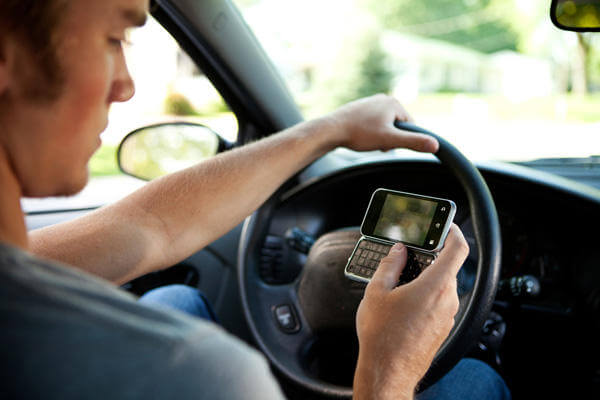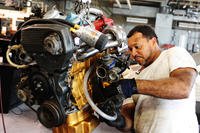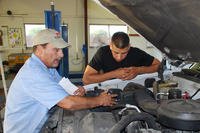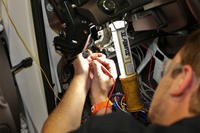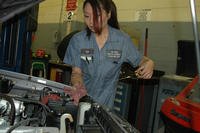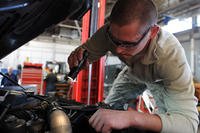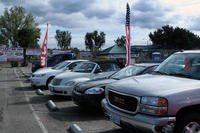Content provided courtesy of USAA.
The driver's seat is no place to give your multitasking skills a workout.
Potentially dangerous driver distractions can be visual, physical or cognitive, says Shayna Dickson, senior staff underwriter for loss prevention and safety at USAA. They might be texting, rubbernecking or daydreaming.
"The key to all of it is to have your eyes on the road, your hands on the wheel and your mind on the road," Dickson says.
After all, the consequences of driving distracted can be tragic.
"When you allow distractions to take over your job of driving, that can have life-altering and potentially fatal results," says Kellie Rohner, an underwriter for loss prevention and safety at USAA.
So next time you're behind the wheel, put away the mobile device, skip the sandwich and cut out the following distracting behaviors:
- Talking on the phone. Whether hands-free or hand-held, both kinds of devices are equally distracting, Rohner says. Consider turning your phone off or placing it out of reach, perhaps on the back seat or in the glove box.
- Text messaging. Reading or typing text messages means your eyes (and brain) are not on the road. Consider using a safe driving mobile app that can disable texts and email in a moving car, depending on the app and platform. For more information on texting and distracted driving, visit USAA's It Can Wait website.
- Tweaking your GPS settings. Don't fiddle with the GPS unless you've pulled over and parked.
- Grooming. Either allow enough time to finish self-care before leaving home or wait until you've reached your destination to comb hair, apply makeup or shave.
- Retrieving dropped items. If something falls on the floor of your vehicle while you're driving, leave it there until you can safely park and fish it from the floorboard or under the seat.
- Driving unruly passengers. Loud or distracting behavior from children and even some adult passengers can sabotage a normally attentive driver's best efforts. Try not to referee from the driver's seat. Save that for when you're no longer navigating traffic.
- Eating. Breakfast, lunch or dinner can wait. Really.
- Letting the dog onto your lap. Attentive drivers don't let Fido (or Miss Kitty) join them behind the wheel.
- Rubbernecking. Tempting as it may be to scope out the scene of an accident, keep your eyes on the road to avoid becoming the next object of attention for curious drivers.
